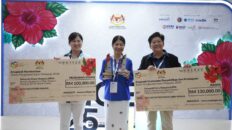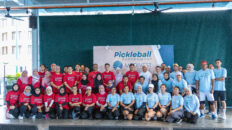
A groundbreaking study by The Chinese University of Hong Kong (CUHK) Business School has found that the genetic basis of creativity is closely tied to both career success and mental health vulnerabilities, offering fresh insight into how our DNA shapes not only what we do, but how we feel.
Conducted in collaboration with researchers from Shanghai University of Finance and Economics, National University of Singapore and Duke-NUS Medical School, the study is one of the largest of its kind. Using genome-wide data from nearly 500,000 individuals in the UK and US, the research draws a complex map of how genetic traits linked to creativity correlate with income, occupational status, job satisfaction and well-being – as well as with risks for conditions like bipolar disorder, schizophrenia and autism.
“There are genetic overlaps between creativity with both positive and negative well-being indicators,” said Professor Li, lead researcher at CUHK Business School.
Genes, Creativity and the Highs (and Lows) of Success
According to the study, individuals who carry creativity-linked genetic markers tend to report higher income and career achievement, particularly in managerial and scientific fields. These same individuals also exhibit stronger indicators of job satisfaction, suggesting that their creative disposition contributes to more meaningful professional engagement.
However, the story doesn’t end there. The researchers also found that these genetic traits were positively associated with mental health challenges, such as a heightened genetic risk for bipolar disorder, schizophrenia, and autism. This dual outcome – career advantage and psychological vulnerability – suggests that creativity comes with both reward and risk.
Artistic creativity, in contrast to managerial or scientific creativity, showed weaker correlations with income, but was still positively linked to job satisfaction – a reminder that fulfillment and financial success don’t always walk hand in hand.
Rethinking the Workplace: Why Environment Matters
Beyond the genome, the research underscores the importance of environmental support. Creative individuals thrive best in inclusive, psychologically safe workplaces that empower them to channel their imaginative thinking healthy, productive ways.
“Managers should understand the importance of how environment can help release individual potential and create a positive, healthy and inclusive work environment to maximise the positive role of the creativity gene,” Professor Li added.
The findings signal a call to action for HR professionals and leadership teams to take mental well-being as seriously as performance metrics – especially in high-innovation sectors where creative thinking is essential.
Redefining Success Through Science
The CUHK Study – officially titled “A genome-wide association study of occupational creativity and its relations with well-being and career success” – provides a more nuanced understanding of how creativity functions in modern life. While it affirms creativity as a career asset, it also reminds us that mental health support must evolve alongside professional development frameworks.
The research has been published on CUHK Business School: https://cbk.bschool.cuhk.edu.hk/the-science-of-creativity-genetics-and-careers/









